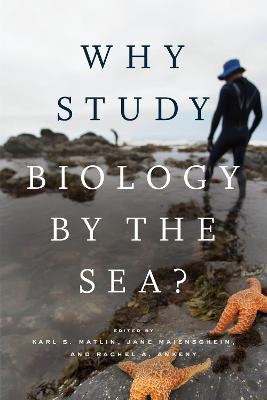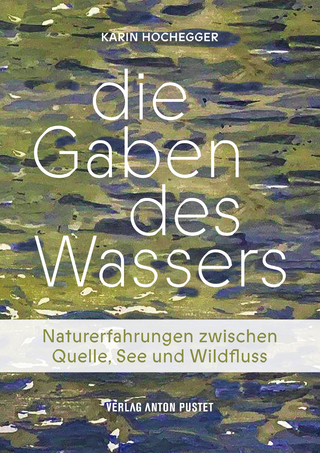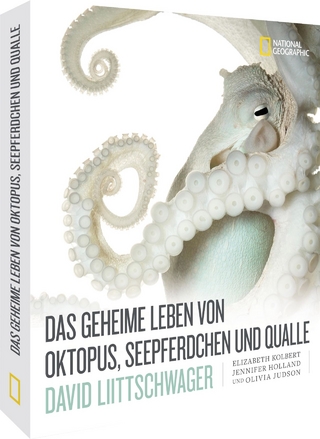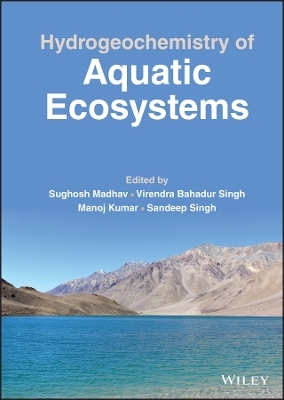
Why Study Biology by the Sea?
University of Chicago Press (Verlag)
978-0-226-67276-2 (ISBN)
From the Stazione Zoologica in Naples to the Marine Biological Laboratory in Woods Hole, the Amoy Station in China, or the Misaki Station in Japan, students and researchers at seaside research stations have long visited the ocean to investigate life at all stages of development and to convene discussions of biological discoveries. Exploring the history and current reasons for study by the sea, this book examines key people, institutions, research projects, organisms selected for study, and competing theories and interpretations of discoveries, and it considers different ways of understanding research, such as through research repertoires. A celebration of coastal marine research, Why Study Biology by the Sea? reveals why scientists have moved from the beach to the lab bench and back.
Karl S. Matlin is a cell biologist and professor in the Department of Surgery and a member of the Committee on Conceptual and Historical Studies of Science at the University of Chicago. He is coeditor, most recently, of Visions of Cell Biology: Reflections Inspired by Cowdry's "General Cytology, " also published by the University of Chicago Press. Jane Maienschein is University Professor in the School of Life Sciences at Arizona State University and fellow and director of the History and Philosophy of Science Project at the Marine Biological Laboratory in Woods Hole, Massachusetts. She is coeditor, most recently, of The Ark and Beyond: The Evolution of Zoo and Aquarium Conservation, also published by the University of Chicago Press. Rachel Ankeny is professor of history at the University of Adelaide, Australia, and honorary visiting professor in the College of Social Science and International Studies (Philosophy) at the University of Exeter, UK.
Foreword, Nipam H. Patel
Introduction, Karl S. Matlin, Jane Maienschein, and Rachel A. Ankeny
Part One Marine Places
1 Why Have Biologists Studied at the Seashore? The Woods Hole Marine Biological Laboratory
Jane Maienschein
2 Marine Biology Studies at Naples: The Stazione Zoologica Anton Dohrn
Christiane Groeben
3 The First Marine Biological Station in Modern China: Amoy University and Amphioxus
Christine Yi Lai Luk
4 The Misaki Marine Biological Station’s Dual Roles for Zoology and Fisheries, 1880s–1930s
Kjell David Ericson
Part Two Marine Practice
5 Illuminating Animal Behavior: The Impact of Laboratory Structure on Tropism Research at Marine Stations
Samantha Muka
6 The Scientific Fishery: Sampling, Dissecting, and Drawing in the Gulf of Naples
Katharina Steiner
7 A Dual Mission: Research and Education as Critical Factors for the Scientific Integrity of the Marine Biological Laboratory
Kate MacCord
8 Francis O. Schmitt: At the Intersection of Neuroscience and Squid
Kathryn Maxson Jones
9 Microscopes and Moving Molecules: The Discovery of Kinesin at the Marine Biological Laboratory
Karl S. Matlin
10 Using Repertoires to Explore Changing Practices in Recent Coral Research
Rachel A. Ankeny and Sabina Leonelli
11 Why Study Sex by the Sea? Marine Organisms and the Problems of Fertilization and Cell Cleavage
Michael R. Dietrich, Nathan Crowe, and Rachel A. Ankeny
12 Hagfish and Vascular Biology: Why the Marine Model Matters
Marianne A. Grant and William C. Aird
Epilogue: The Future of Biological Research Will Be Found in the Oceans, Alejandro Sánchez Alvarado
Acknowledgments
List of Contributors
Index
| Erscheinungsdatum | 31.12.2019 |
|---|---|
| Reihe/Serie | Convening Science: Discovery at the Marine Biological Labora |
| Sprache | englisch |
| Maße | 152 x 229 mm |
| Themenwelt | Naturwissenschaften ► Biologie ► Limnologie / Meeresbiologie |
| Naturwissenschaften ► Biologie ► Ökologie / Naturschutz | |
| ISBN-10 | 0-226-67276-X / 022667276X |
| ISBN-13 | 978-0-226-67276-2 / 9780226672762 |
| Zustand | Neuware |
| Haben Sie eine Frage zum Produkt? |
aus dem Bereich


